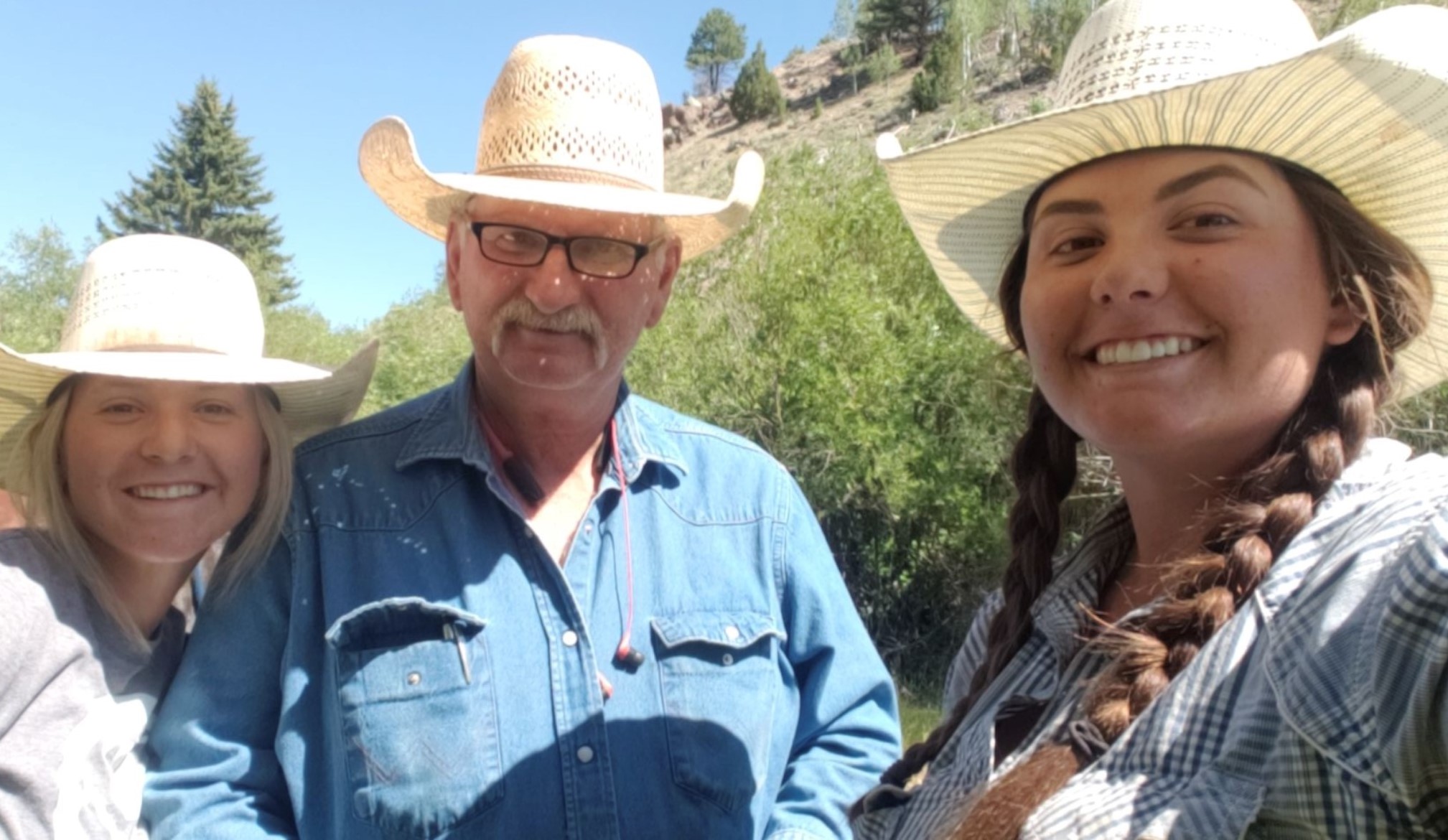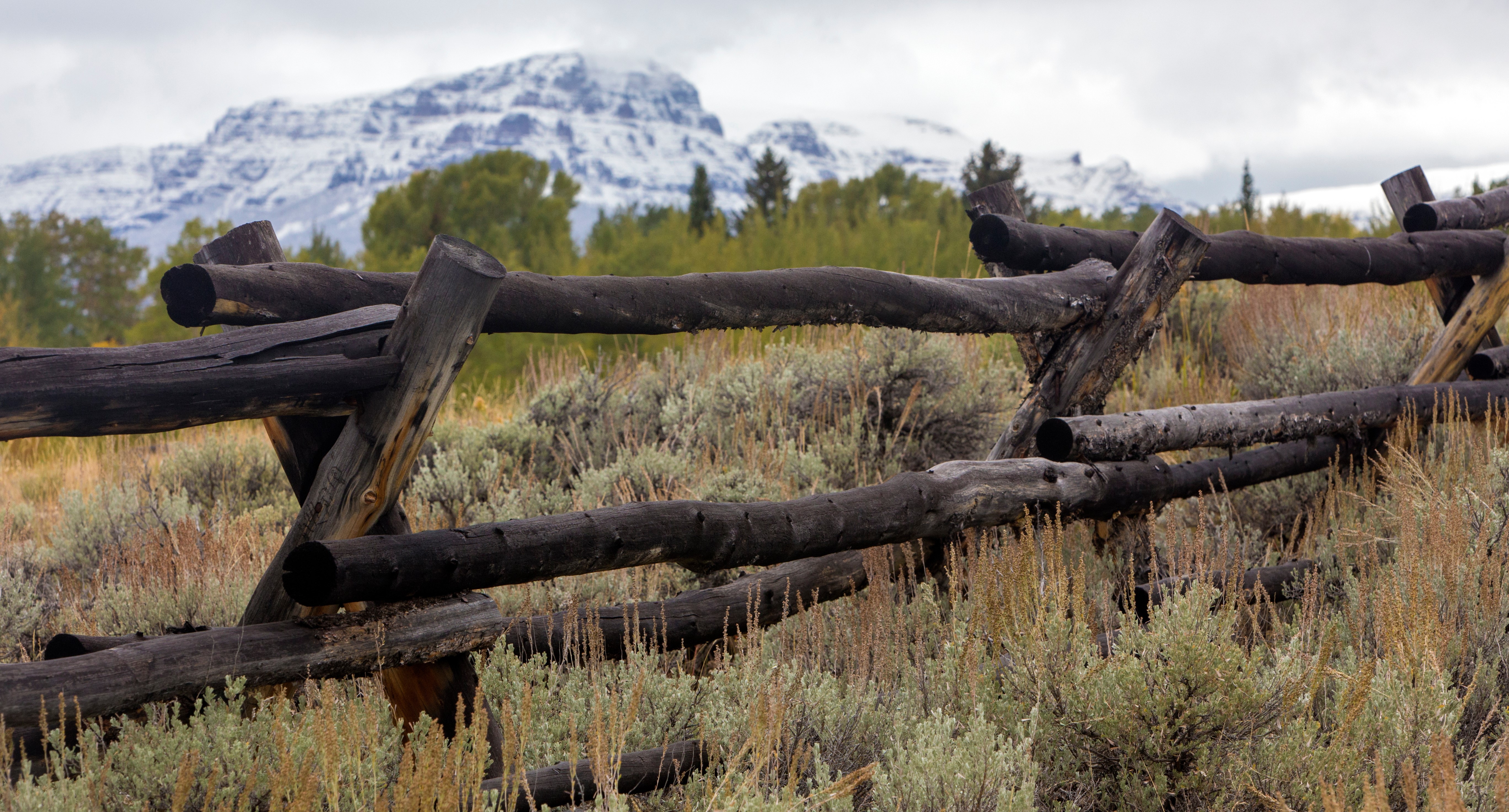
Scott Stubbs
Scott Stubbs is no stranger to hard work. From an early age, Scott threw himself into his family’s sheep business, learning the ropes from his father and grandfather. Scott shared that whether it was on the winter range or on the mountain, he grew up helping his dad work the farm and sheep. It comes as no surprise, therefore, that for as long as he can remember, Scott’s dream was to have his own sheep herd and farm. Scott, along with his wife and children, were able to realize this dream. Today, Scott manages a large sheep herd that runs on 100,000 acres of public and state lands, along with 4,500 acres of leased private land and additional 180 irrigated acres owned by the Stubbs family. Despite his operation’s size, however, family management continues to remain a core component of the Stubbs family business.
An Obligation to Generations Past
Scott began his ranching operation in 1989, purchasing 900 head of range ewes. Originally, his operation consisted only of public and state lands, with barely enough private property to lamb ewes. Scott received a great deal of help from his father with his operation who jointly cultivated alfalfa for both their herds. When it came time for his father to retire in 2005, Scott purchased his father’s allotments, beginning his expansion and assuming whole responsibility for the Stubbs family’s sheep cultivation operations.
The assistance Scott received from his father is not considered unique in the Stubbs family. As a 5th generation farmer from Parowan, Utah, Scott’s ancestors ran sheep on most of his allotments. Each generation of the Stubbs family has learned and grown from the one that came before it. As a result, Scott, as the overseer of the family business, feels an obligation to continue to preserve and grow the Stubbs family business. “Because of this history”, said Scott, “I can’t be the one who lets this operation fail”.
Stewards of Public Lands
Because of their work as sheep herd managers, the Stubbs family views themselves as “stewards” of the land they use. This notion of public lands stewardship implies an obligation felt by Scott to give back to the lands he uses every day, in addition to his responsibilities of providing quality fiber and clothing materials to his consumers. Scott has participated in multiple watershed management projects, where he worked with community organizers and local officials to coordinate his herd in such a way as to protect and enrich the local bodies of water in his community. Furthermore, because Scott’s herd grazes on public lands, his sheep contribute to fire management mitigation and resource protection. It is through these efforts that the Stubbs function as public lands stewards in addition to ranchers.
While public lands have enriched the Stubbs family, both financially and emotionally, Scott actively gives back to the lands themselves. Scott and his family work constantly to maintain a healthy range for the sustainability of future generations. Outside of the operations of his ranch, Scott works as the Iron County Farm Bureau President, allowing him opportunities to develop relationships with the U.S. Forest Service and Bureau of Land Management. In this role, Scott actively promotes public lands sustainability for future generations while simultaneously preserving the right to graze.
Public Lands Enrichment: A Two-Way Street
According to Scott, without public lands his operation would be out of business. It is because of public lands that Scott is able to do what he loves: ranching with his family. “Thanks to public lands I am able to still do what I love.”
Nevertheless, Scott can recall vividly how he is subject to constant pressure from environmentalists to cease ranching on public lands, despite the immense benefits that his operation provides to the environment itself. In particular, the Endangered Species Act has been weaponized by environmentalists as a means of attacking Scott and his business. Scott has unfortunately been subject to criticism of his ranching activities under the guise of natural habitat preservation, despite the critical fact that grazing is an essential component of the original habitat of the lands used by the Stubbs family. To improve the perception of public lands ranchers in his community, Scott sits as a co-chair on the Utah Public Lands Council. In this role, he works closely with county commissioners and other permittees to protect and preserve ranchers’ right to graze on public lands.
Looking Ahead: Family Unity in the Face of Uncertainty
Despite the threats to public lands grazing seeming to grow greater each year, Scott believes that there is a future in public lands grazing. According to Scott, in order for public lands grazing to continue to thrive, “it will take us all participating and commenting on the issues that face us.” Scott is committed to crafting policy and informing the public about the issues most pertinent to his operation. As a member of PLC’s grazing committee, Scott is involved in combating threats related to coyotes and other predators, which continue to threaten the well-being of herds across Utah and the West. This allows Scott, along with his other committee members, to assume an active role in protecting grazing rights for public lands ranchers across the United States. Over the years, Scott has taken intentional steps to combat each threat to his operation, using his on-the-ground expertise to tackle local challenges and assuming a wide variety of leadership roles to make the industry more able to withstand larger challenges. He does this with the full support of his family who, in true Stubbs family fashion, work as integral components of the family business. Scott’s son started his own sheep shearing operation so he could remain involved in the ranch, and his daughters both help the family business as well. “Having my children involved is a blessing in my life”, said Scott. With the Stubbs family behind him, Scott is armed and ready for any uncertainty that may come his way.
Whether it be at home, in his local Parowan community, or as a committee member for a national organization like PLC, Scott Stubbs works tirelessly to preserve and promote the rights of public lands grazers everywhere. Most importantly, Scott is committed to the sustainability of his herd, land, and environment, working to forge a brighter future for the Stubbs family and other public lands grazers around the United States.
